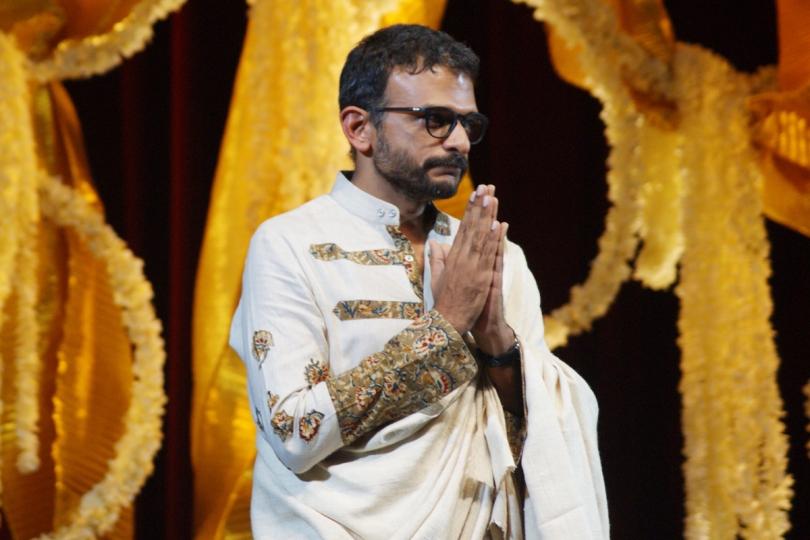A victory in the caste wars

Pressing for reform, Indian singer Thobur Madabusi Krishna wins the Ramon Magsaysay Award
Thobur Madabusi Krishna, one of India’s most popular and socially provocative Carnatic vocalists, is this year’s Ramon Magsaysay Award winner for Emergent Leadership, selected for his advocacy of dismantling the boundaries of India’s caste system by taking Carnatic music beyond class limits.
He has been called the “Pied Piper of Art Unbound”, the precursor of a movement to free one of India’s most elite art forms from the shackles of exclusivity. Then again, Krishna would likely disagree, being against labels, imposition and hegemony.
All he wants is to see free access to all forms of art – his genre of Indian classical music included – and bring into a single audience people of diverse tastes, backgrounds, race, social class, religions and political convictions.
“The point is not about liking or disliking. But it is, I think, the fundamental right of every human being to have unfettered, uninhibited, fearless access to every art and every culture. I think that’s a fundamental right, as much as education is a fundamental right,” Krishna says.
Krishna has won the Ramon Magsaysay Award for Emergent Leadership for advocating that the boundaries of India’s caste system be dismantled.
The Ramon Magsaysay Foundation cites “his forceful commitment as artist and advocate of art’s power to heal India’s deep social divisions, breaking barriers of caste and class to unleash what music has to offer not just for some, but for all.”
The award comes at a “very interesting time” for Krishna, he says, just as caste conflict continues to flare up periodically in his homeland, since he has drawn both praise and criticism for his advocacy to liberalise all forms of art.
“The idea that art and culture have to be loosened from social and political systems that strangle them within communities, within people, within sexes, all that, that is the way you can get people together. That is possibly how you can help people understand others”
Krishna grew up in privilege, born in Chennai in 1976 to a business family of the highest Brahmin caste. He was exposed to Carnatic music early, training at age six in the aristocratic classical art form that his father, TM Rangachari, loved.
Carnatic music is a centuries-old southern Indian genre performed by a vocalist, violinist, a tambura (drone) player and percussionists, using both composed and improvised lyrics and melodies.
It has “never really been music for all”, says Krishna, instead largely catering to India’s rich.
Krishna started performing Carnatic music at age 12 but had a “big dream” to pursue a career on the other side of the spectrum, in economics. Taking on the art full time beckoned as early as 16, when old-timers on the Carnatic circuit encouraged him to “take this seriously, because you have some talent”.
He still finished his degree, but then readily shifted to Carnatic singing full time. He enjoyed the celebrity early on, singing in concert halls filled with spectators from his own caste.
“For many years I sang like a musician. I wanted to be rich and famous, as they say. Of course, I loved the adulation. I loved the applause,” he says.
But in early 2000 Krishna started to question the purpose of it all. Exposed to the teachings of Karl Marx, Jean-Paul Sartre and Indian thinker Jiddu Krishnamurti, the emerging star started to seek deeper meaning for his art.
When he was “almost at the top” of his career, he took a step back and wanted to understand his music better by researching the music form’s history.
Krishna has authored a book on the subject, “A Southern Music: Exploring the Carnatic Tradition”, which he describes as “a philosophical and socio-political inquiry of the art form”.
RELATED





